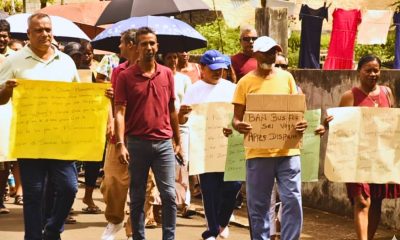News
120 Nations Judged: Mauritius Drops to 51st in Good Government Index

Despite holding onto its top spot in Africa for the fifth year running, Mauritius has slipped five places in the global Chandler Good Government Index (CGGI) 2025, falling from 46th to 51st. The country’s strong regional performance, where it remains ahead of Rwanda (59th globally) and Botswana (61st globally), masks a more concerning downward trend on the world stage.
This dip raises questions about the effectiveness of recent reforms and the country’s ability to remain competitive against other emerging economies.
While its continued African leadership points to a relatively stable governance system—with regular elections and functioning institutions—the global decline suggests the system is struggling to keep pace with faster-progressing nations.
Indicators related to transparency, economic competitiveness, and the efficiency of public services appear to have weighed heavily on the evaluation.

A Tale of Two Realities
The paradox of Mauritius being a regional leader yet losing ground globally highlights persistent internal vulnerabilities.
The CGGI, published by the Chandler Institute of Governance, evaluates 120 countries on seven pillars, including leadership and vision, strong laws, financial management, and economic attractiveness.
While the report notes a slight improvement in overall scores for Africa between 2024 and 2025, the continent still has the lowest scores globally.
The top five African countries in the index are completed by Morocco (75th globally) and South Africa (77th globally).
However, for Mauritius, this regional lead doesn’t tell the whole story. The country faces significant internal challenges, including a rising cost of living, high youth unemployment, growing public debt, and recurring criticism regarding the politicisation of public bodies.
Public Figures Raise Concerns
The CGGI’s findings have been met with skepticism by some public figures who argue the index doesn’t reflect the daily realities of Mauritian citizens.
Haniff Peerun, president of the Mauritius Labour Congress (MLC), described the global ranking as “flattering, but far from the reality of Mauritians.”
He argued the results contradict official government reports and public sentiment, citing a lack of public trust in institutions and a struggling economy where citizens are “struggling to make ends meet.”
Peerun stressed that for such indices to be credible, they must involve input from a broader range of voices, including civil society, trade unions, and citizen organisations, rather than relying solely on government declarations.
Constitutional lawyer and political observer Parvez Dookhy also expressed little surprise at the country’s decline.
He believes Mauritius is experiencing a gradual erosion of the rule of law, characterised by increasing opacity and arbitrary actions.
Dookhy cited recent public appointments as an example of nepotism trumping meritocracy.
He also pointed to the ineffectiveness of the legal system, where prolonged court cases render justice inoperative, fostering a sense of impunity and public frustration.
The lawyer also noted that the Prime Minister’s recent use of a parliamentary majority to abolish a commission of inquiry into his affairs further undermines the rule of law and erodes public trust.
Source: Defi Media











